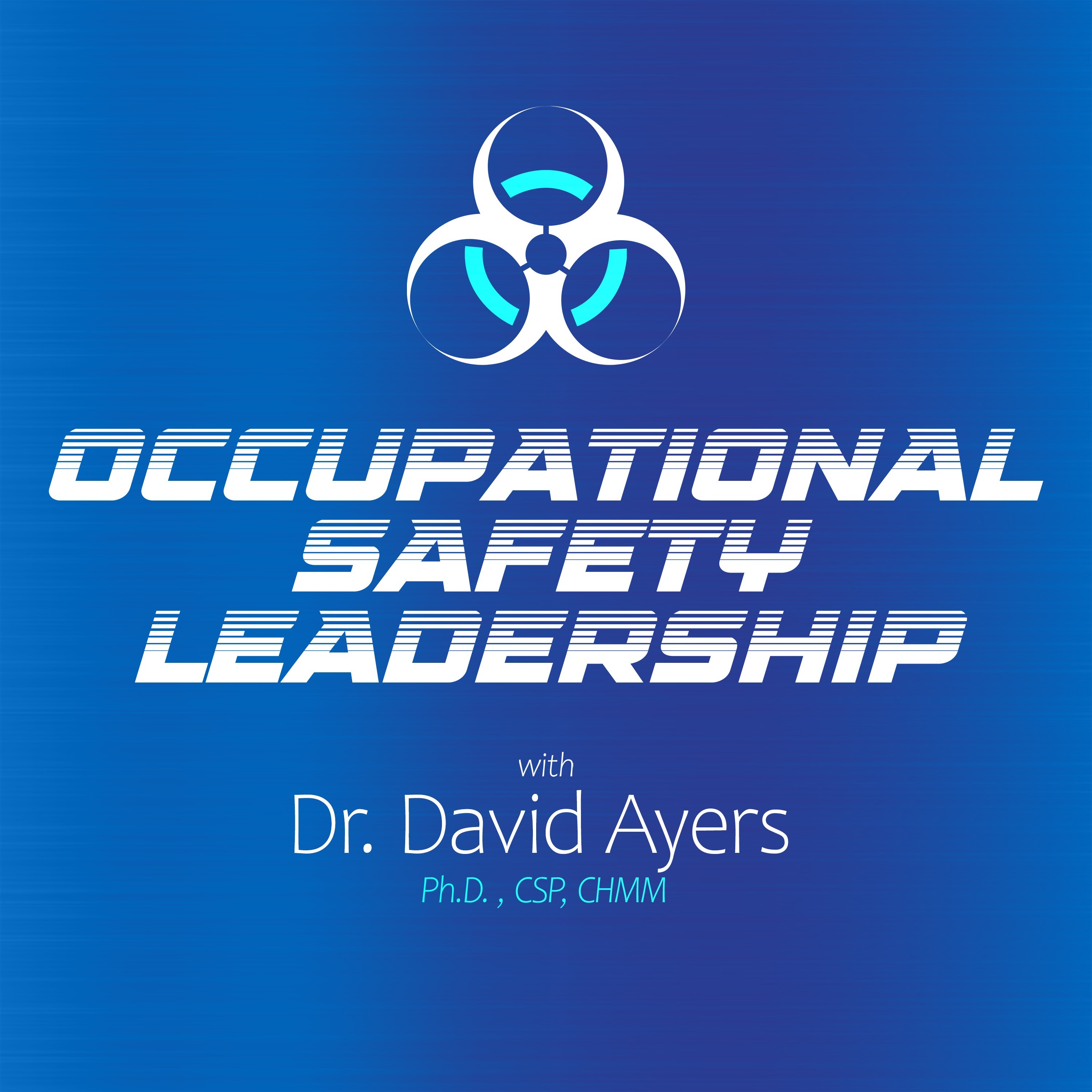In today's episode, Dr. Ayers discusses narcotic effects of chemical exposure. Always eliminate, substitute or engineers out the hazard, then as a last resort use PPE.
The Occupational Safety Leadership Podcast
Episode 170 - Narcotic Effects of Chemical Exposure

Welcome to the Occupational Safety Leadership Podcast, episode number 170. And in today's episode, we're going to talk about narcotic effects of chemical exposure. Let's just dive right in. Let's do a little definition before we really dive right in. So let's look at the definition of narcotic effects. It's generally understood that it refers to a state of stupor drowsiness or unconsciousness that can result from exposure to certain chemicals. These effects usually have a result on the central nervous system and it depresses the central nervous system. And when we kind of think about that, we already know of a couple of them out there. When we think about solvents, chemicals in the solvent family are things like benzene, tyruene, xylene, ethylene, acetate, acetone. They do a good job of depressing the central nervous system. So let's kind of go on here and look because when we kind of think about narcotic effects, I've never done narcotics before, but I have had alcohol. So I kind of think about how that affects me and the way that I think and all that kind of stuff. So I can definitely see where this is a really big deal because if it's going to cause a stupor drowsiness, just not thinking and all that kind of stuff then, that's going to be pretty awful in the workplace when people have to make good independent decisions. Couple of the gases that fall in this family, carbon monoxide, nitrates, oxygen, oxide, I'm sorry, nitrous oxide, hydrogen sulfide, ammonia, and when we think about some heavy metals, we have lead and mercury out there. So all these, we know we're going to have a effect on the central nervous system. And when we look at the symptoms of narcotic effects, I couldn't really find where if you did chemical A, you're always going to find this symptom. So it looks like it kind of affects folks in different ways. So let's just kind of go through the symptoms of narcotic effects. So drowsiness or sleepiness, you can have a dizziness sensation. They say that you kind of have that light headed kind of a spinning sensation, headache, nausea, and nausea is defined as kind of having that feeling of sickness with that feeling of you're going to vomit. Not just like you feel sick, but just like, all right, here it comes, I'm going to vomit. Confusion, loss of coordination, slurred speech says that slow or garbled speech due to central nervous system depression, unconsciousness, and then finally respiratory depression, which is defined as a slow or shallow breathing. So I wish that I could say, hey, the research says with this chemical, you're going to have headache and nausea only, but I just have not found that out there. And this probably goes along with, because all of us humans are different, it's probably really hard to find that one thing that has a central nervous system depression on every single person at every single dose out there, it's just something that we know is out there. Obviously, we want to use things like our engineering controls, we substitute, we eliminate, we do all that kind of stuff then, and then at the very end, I mean, if you literally can't control it in all the other fashions, then start looking at things like PPE and respirators and all the rest of the stuff then. PPE for the most part is hot, uncomfortable, doesn't always fit right. Of course, for guys, we're worried about we have to have a good shave every day. And in this era of guys have guys have beards, it's really hard to get guys to have a good shave every single day out there. There's also things that we want to take care of as safety professionals in general. We want to make it as safe as we possibly can and anytime you introduce things like PPE, you're also introducing a little bit of human error. You're hoping they wear it every time, you're hoping they wear it correctly, you're hoping that they clean it and they change out filters and they do all that other stuff too. So I think at this point, I'm just rambling on. So let's go ahead there and wrap it up. I'd like to thank everybody for joining me today for episode number 170. We talked about the narcotic effects of chemical exposure. Again, there's not a one-size-fits-all, there's not a I've been exposed to chemical A. So I will have slurred speech and a headache that's just not out there. So look for the signs and symptoms. All of us are going back and looking at these chemicals that we're using in the workplace. There's got to be a way that we can substitute for something safer. It has to be a way that we're using the engineering controls. And then finally, if you really have to, PPE and respiratory protection. So that is it for 170. I want to thank everybody for joining me today. Please help me by reposting to get this message out there to other safety professionals. Because I only have a limited, unlimited reach and the more that we can help those safety, those other safety professionals out there really helps us out as just a industry and whole. Thank you for joining me. My name is Dr. David Ayers. Have a safe day.
In today’s episode, Dr. Ayers discusses narcotic effects of chemical exposure. Always eliminate, substitute or engineers out the hazard, then as a last resort use PPE.